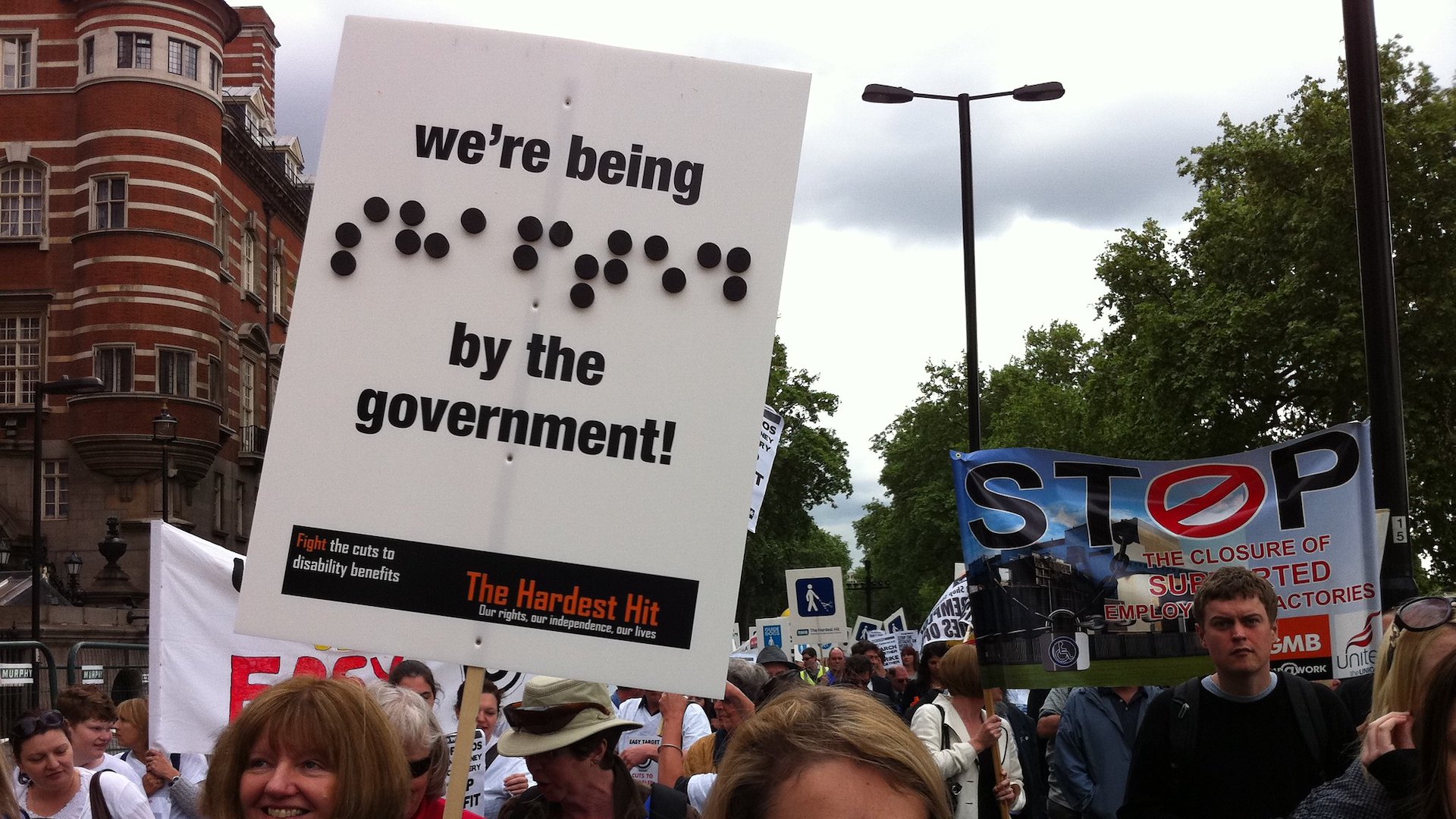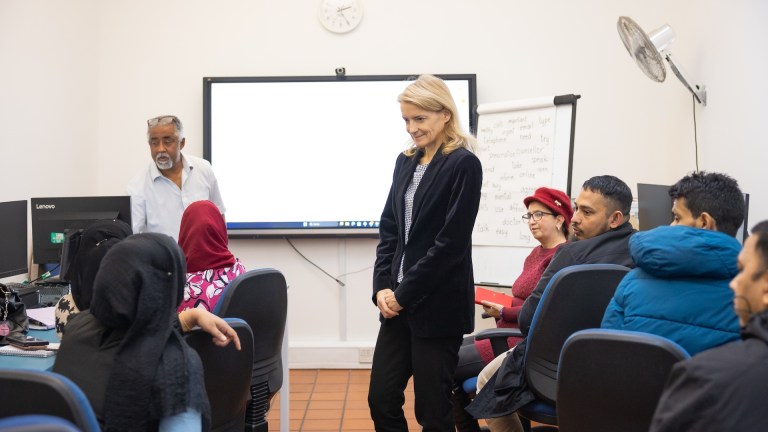Sharon had to reduce her working hours to part time, because looking at a computer screen was straining her eyes and causing headaches.
The team at RNIB went through the assessment with her and found that she would be eligible for the enhanced rate. But when Sharon received her results, she had scored zero points for the daily living element – except for the reading element.
“I didn’t realise it would make me feel so stressed,” Sharon said. “I was quite shocked. I didn’t expect to score basically nothing. When the charity was reading my decision letter they noticed that it actually didn’t mention my sight loss once in the daily living part.
“They mentioned something about my limbs being fine. But they didn’t mention the sight loss at all. I did mention in my application that it’s not pain that stops me from getting around. It’s not about not physically being able to move. It’s about not being able to see, or not see well.”
Your support changes lives. Find out how you can help us help more people by signing up for a subscription
When she spoke to The Big Issue, she was getting ready to appeal the decision on the advice of the RNIB. Since then, about a month on, the charity helped her write an eight-page letter to the DWP, restating everything she needed help with and where she should have been awarded points.
Advertising helps fund Big Issue’s mission to end poverty
Following her initial appeal, known as a mandatory reconsideration, the DWP has reversed their decision and gave her more points for her daily living sections which now means she has been awarded an enhanced rate of this element.
Sharon is far from alone. Dominic Milne, a legal officer at RNIB, said: “All too often we hear that disability assessors don’t understand the daily issues faced by people with sight loss and the specific support needed to overcome barriers when being assessed for a benefit.
“In a sample batch of 20 cases represented by RNIB, claimants who initially received no points for PIP went on to receive the highest awards for daily living and mobility when the decision was challenged at appeal. This illustrates the flawed nature of the current process and the lack of recognition of the barriers faced by blind and partially sighted people.”
There is no difference in the assessment questions for those with mental health conditions, people who use wheelchairs and those who are visually impaired. Around 69% of visually impaired people feel that assessment questions do not relate properly to them, according to an RNIB survey.
Sharon added: “Even the application process itself isn’t very accessible, especially for visually impaired people because your only option is to ring them up. Sometimes you’re on hold for an hour trying to get through. There’s no online option. I can’t see black text on a white paper very well. If it was digital, you’d have the option to zoom in.”
A DWP spokesperson said: “We support millions of people with disabilities every year and in the majority of PIP cases we make the right decision. All our disability assessors are qualified health professionals, and we are investing in their skills so that everyone has a positive experience when claiming PIP.”
Advertising helps fund Big Issue’s mission to end poverty
The Big Issue has not seen evidence to confirm it makes the right decision in the majority of cases. The DWP rejects almost 90% of mandatory reconsiderations, but official statistics show 68% of claimants win their case when appealing the decision at tribunal.
Sharon is grateful to the charity who helped her, and that she did not have to take her appeal any further, but she knows many others are struggling. “I see other people’s stories and they didn’t even get anything. I didn’t realise it would just sit on my mind this much. It’s all I can think about. The idea of having to go to tribunal makes me feel sick.”
Get the latest news and insight into how the Big Issue magazine is made by signing up for the Inside Big Issue newsletter
Do you have a story to tell or opinions to share about this? We want to hear from you. Get in touch and tell us more.





